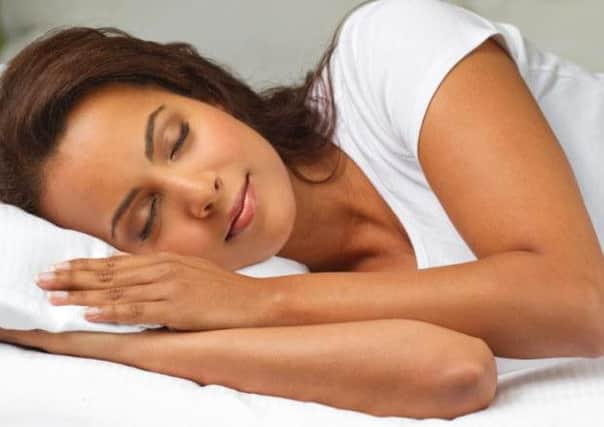People with poor sleep ‘four times more likely to catch a cold’


People who sleep six hours or less a night are four times more susceptible to colds than those who spend more than seven hours in slumber land, a study found.
Scientists exposed 164 volunteers to the common cold virus to test their ability to fight off the infection.
Advertisement
Hide AdAdvertisement
Hide AdThey found that poor sleep in the previous week was associated with a 4.2 times increased risk of developing cold symptoms.
Those who slept for less than five hours a night were 4.5 times more likely to start sneezing.
Lead researcher Dr Aric Prather, from the University of California at San Francisco, said: “It goes beyond feeling groggy or irritable. Not getting sleep fundamentally affects your physical health.”
Participants in the study had their normal sleep habits assessed during the week before the scientists attempted to make them catch a cold.
Advertisement
Hide AdAdvertisement
Hide AdNasal drops were used to administer the cold virus, after which the volunteers were monitored for another week.
Dr Prather said: “Short sleep was more important than any other factor in predicting subjects’ likelihood of catching cold. It didn’t matter how old people were, their stress levels, their race, education or income. It didn’t matter if they were a smoker. With all those things taken into account, statistically sleep still carried the day.”
The findings appear in the latest online edition of the journal Sleep.
Previous research led by Dr Prather has shown that people who sleep fewer hours are less protected against illness after receiving a vaccine.
Advertisement
Hide AdAdvertisement
Hide AdOther studies have confirmed that sleep has a significant influence on T-cells, a vital component of the immune system.
Dr Prather added: “In our busy culture, there’s still a fair amount of pride about not having to sleep and getting a lot of work done.
“We need more studies like this to begin to drive home that sleep is a critical piece to our well-being.”
NHS Choices tips on getting to sleep:
A warm bath (not hot) will help your body reach a temperature that’s ideal for rest.
Advertisement
Hide AdAdvertisement
Hide AdWriting “to do” lists for the next day can organise your thoughts and clear your mind of any distractions.
Relaxation exercises, such as light yoga stretches, help to relax the muscles. Don’t exercise vigorously, as it will have the opposite effect.
Relaxation CDs work by using a carefully narrated script, gentle hypnotic music and sound effects to relax the listener.
Reading a book or listening to the radio relaxes the mind by distracting it.
Advertisement
Hide AdAdvertisement
Hide AdYour bedroom should be a relaxing environment. Experts claim there’s a strong association in people’s minds between sleep and the bedroom.
Certain things weaken that association, such as TVs and other electronic gadgets, light, noise, and a bad mattress or bed.
“It’s important to create an environment that helps you to sleep,” says Jessica Alexander of The Sleep Council. “Keep your bedroom just for sleep – and possibly for sex.”
More sleep tips and advice at www.nhs.uk.
WHAT DO YOU THINK? Get involved in the discussion below.